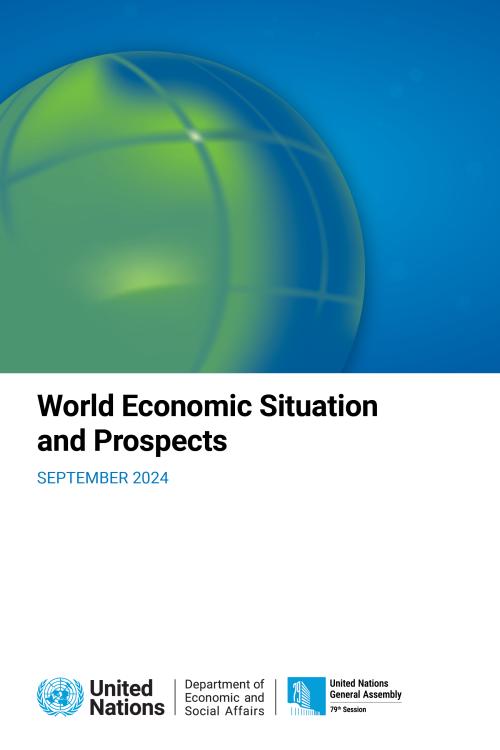
After years of turbulence and significant volatility in economic output, the world economy is on a more stable trajectory. Global growth performance has held up surprisingly well in the face of recent shocks, including aggressive interest rate hikes by major central banks during 2022–2023 and an escalation of conflicts with international spillovers. Robust consumer spending in several large developed and developing economies – buoyed by high levels of employment, rising real wages, and relatively healthy household balance sheets – has sustained economic resilience. In a large number of economies, inflation has slowed considerably and is approaching central bank targets, providing room…
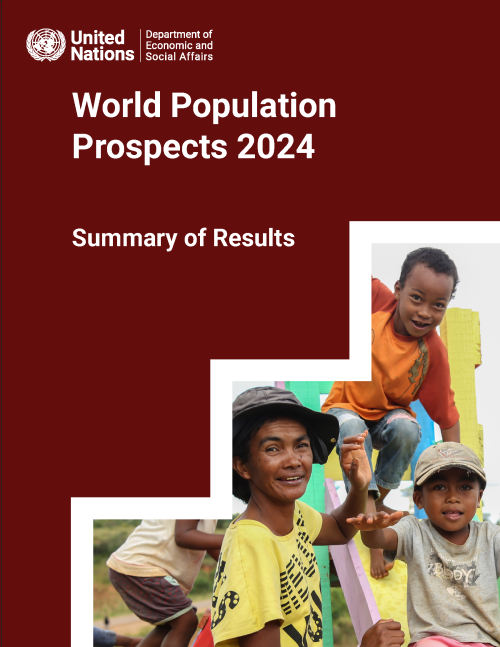
World Population Prospects 2024: Summary of Results adopts the analytical framework of the demographic transition—the historic shift towards longer lives and smaller families—approximated here by the timing at which populations peak in size, to explore differences in population trends that characterise countries and regions today and provide insight into their future trajectories. The report also offers policy recommendations to prepare countries for a population size, age structure and spatial distribution that may differ appreciably from that of their recent past.
World Population Prospects 2024 is the twenty-eighth edition of the official United Nations population…
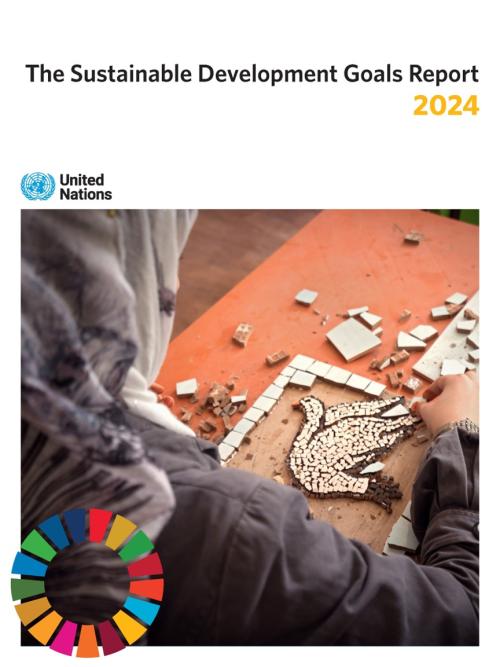
The Sustainable Development Goals Report 2024 details the significant challenges the world is facing in making substantial strides towards achieving the SDGs based on the latest data and estimates. It features areas with setbacks while also showcasing where tangible progress has been made, for instance, in reducing global child mortality, preventing HIV infection, and access to energy and mobile broadband. The report also highlights where action must accelerate, particularly in critical areas undermining SDG progress - climate change, peace and security, inequalities among and between countries, among others.
According to the report, with just six years remaining, current progress…
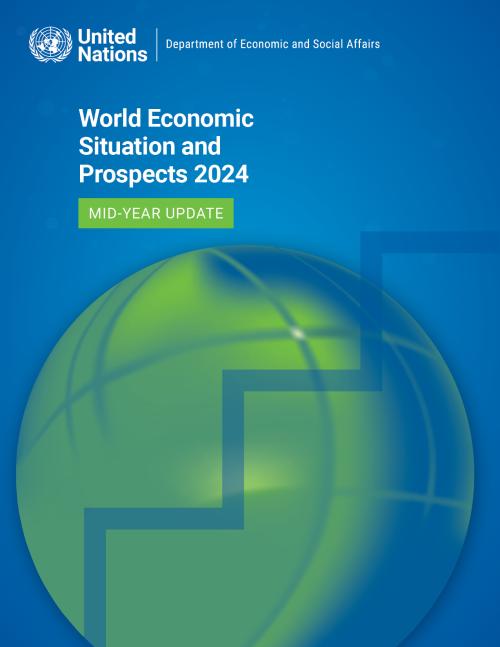
Global economic prospects have improved since January, with major economies avoiding a severe downturn, bringing down inflation without increasing unemployment. However, the outlook is only cautiously optimistic. Higher-for-longer interest rates, debt sustainability challenges, continuing geopolitical tensions and ever-worsening climate risks continue to pose challenges to growth, threatening decades of development gains, especially for least developed countries and small island developing States.
According to the World Economic Situation and Prospects as of mid-2024, the world economy is now projected to grow by 2.7 per cent in 2024 (+0.3 percentage points from the January…
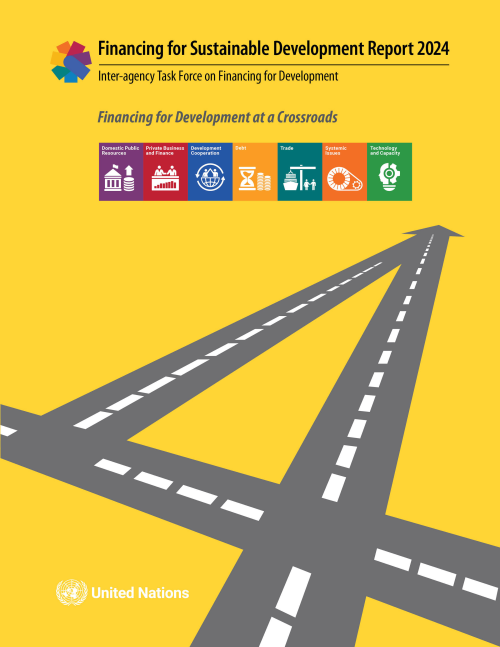
The world is facing a sustainable development crisis. The 2024 Financing for Sustainable Development Report: Financing for Development at a Crossroads finds that financing challenges are at the heart of the crisis and imperil the SDGs and climate action. The window to rescue the SDGs and prevent a climate catastrophe is still open but closing rapidly.
Financing gaps for sustainable development are large and growing – the estimates by international organizations and others are coalescing around $4 trillion additional investment needed annually for developing countries. This represents a more than 50% increase over the pre-pandemic estimates. Meanwhile, the finance divide has not…
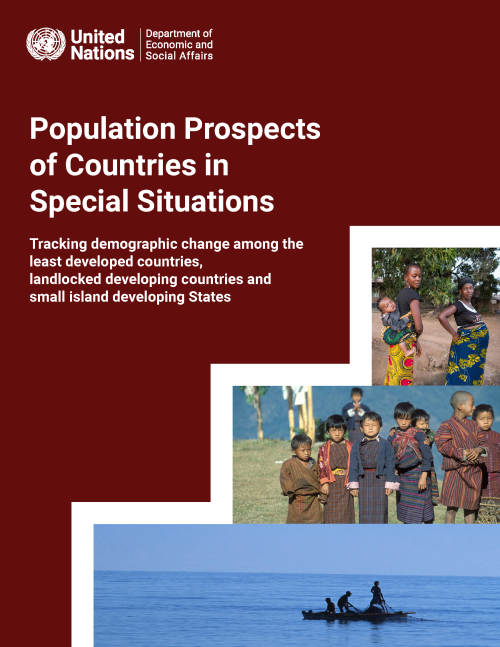
Population Prospects of Countries in Special Situations provides an up-to-date overview of current and future major population trends in the LDCs, LLDCs and SIDS in connection with the opportunities and challenges these trends present for achieving sustainable development. This report highlights levels and trends in population size and distribution, mortality, fertility and international migration, including projections to 2050, for the 110 vulnerable countries or territories, while also discussing the implications of population change for achieving specific Sustainable Development Goals.
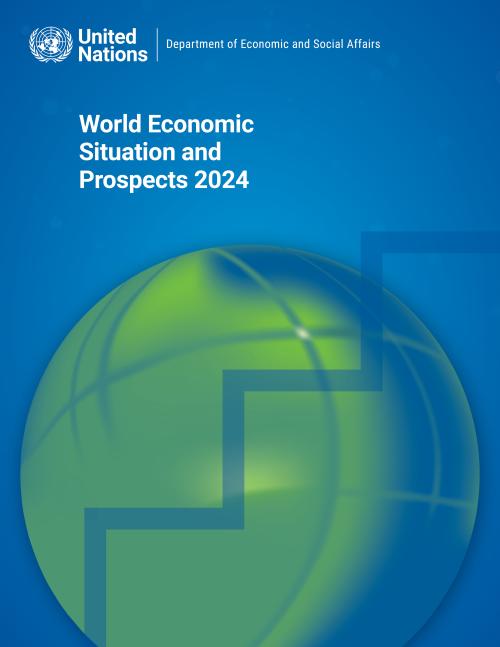
Global economic growth is projected to slow from an estimated 2.7 per cent in 2023 to 2.4 per cent in 2024, trending below the pre-pandemic growth rate of 3.0 per cent, according to the United Nations World Economic Situation and Prospects (WESP) 2024. This latest forecast comes on the heels of global economic performance exceeding expectations in 2023. However, last year’s stronger-than-expected GDP growth masked short-term risks and structural vulnerabilities.
The UN’s flagship economic report presents a sombre economic outlook for the near term. Persistently high interest rates, further escalation of conflicts, sluggish international trade, and increasing climate…
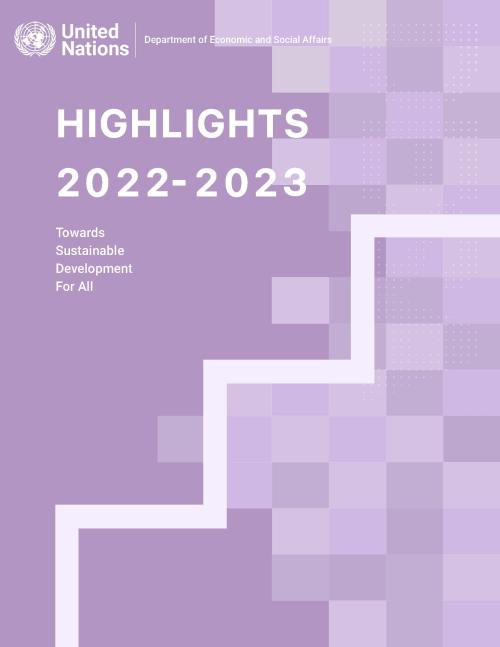
The UN DESA Annual Highlights report is a tool to communicate the contributions of the Department to the realization of internationally agreed development goals and shared social, economic, and environmental aspirations. It showcases the Department’s role in gauging trends, building capacities, and shaping solutions. UN DESA Highlights 2022-2023 covers activities over the period of the 77th Session of the General Assembly (September 2022 – August 2023) and reflects the Department’s response to the set priorities and expressed needs of Member States. Seven (7) thematic chapters showcase how UN DESA put its expertise to the task of supporting Member State efforts to implement the 2030…
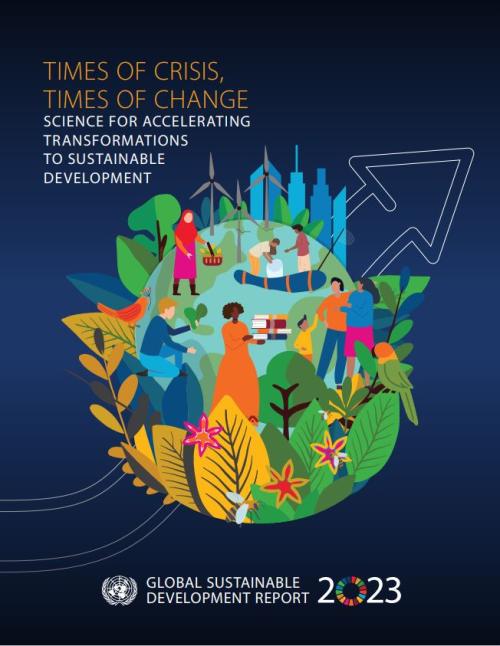
Times of Crisis, Times of Change: Science for Accelerating Transformations to Sustainable Development", the 2023 Global Sustainable Development Report (GSDR), finds that at this critical juncture, midway to 2030, incremental and fragmented change is insufficient to achieve the Sustainable Development Goals (SDGs) in the remaining seven years. Implementation of the 2030 Agenda requires the active mobilization of political leadership and ambition for science-based transformations. This must be achieved globally - leaving no country, society or person behind. The report is an invitation to embrace transformations with the urgency needed to accelerate progress towards the SDGs.
The…
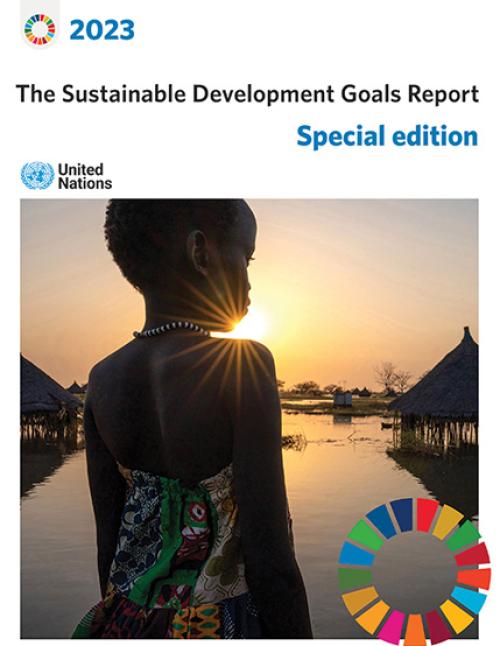
According to The Sustainable Development Goals Report 2023: Special Edition, failure to redouble global efforts to achieve the Sustainable Development Goals – the promise of a better world for all – may fuel greater political instability, upend economies and lead to irreversible damage to the natural environment.
World leaders made a historic promise to secure the rights and well-being of everyone on a healthy, thriving planet when they agreed to the 2030 Agenda for Sustainable Development and its 17 SDGs in 2015. However, the combined impacts of the climate crisis, the war in Ukraine, a gloomy global economic outlook and lingering effects of the COVID-19 pandemic have revealed…
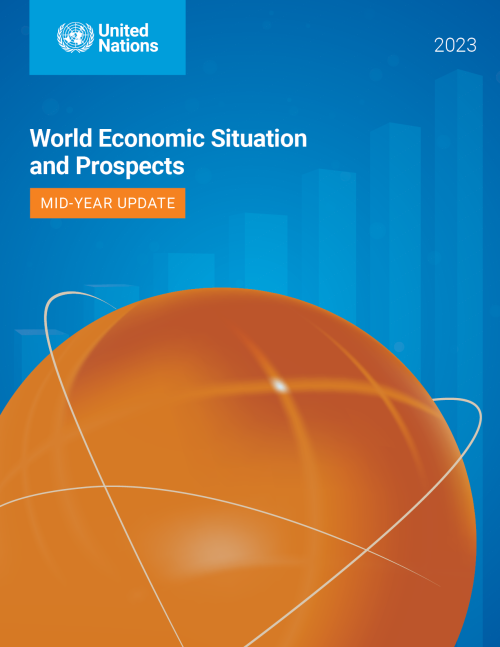
Prospects for a robust global economic recovery remain dim amid stubborn inflation, rising interest rates and heightened uncertainties. Instead, the world economy faces the risk of a prolonged period of low growth as the lingering effects of the COVID-19 pandemic, the ever-worsening impact of climate change and macroeconomic structural challenges remain unaddressed, according to the World Economic Situation and Prospects as of mid-2023 released today.
According to the report, the world economy is now projected to grow by 2.3 per cent in 2023 (+0.4 percentage points from the January forecast) and 2.5 per cent in 2024 (-0.2 percentage points), a slight uptick in the global growth…
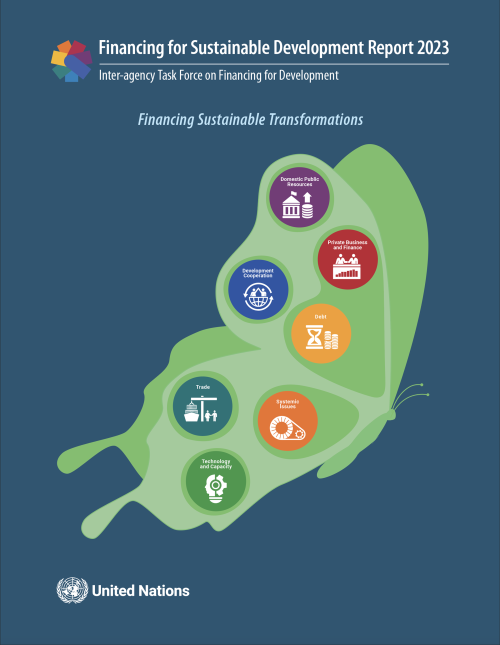
Sustainable development prospects continue to diverge between developed and developing countries. The 2023 Financing for Sustainable Development Report finds that SDG financing needs are growing, but development financing is not keeping pace. The war in Ukraine, sharp increases in food and energy prices, and rapidly tightening financial conditions have increased hunger and poverty and reversed progress on the SDGs. If left unaddressed, a “great finance divide” will translate into a lasting sustainable development divide.
Stakeholders must maintain a long-term focus on resilient and inclusive development, while addressing near-term crises. Delaying investment in sustainable…
 Welcome to the United Nations
Welcome to the United Nations